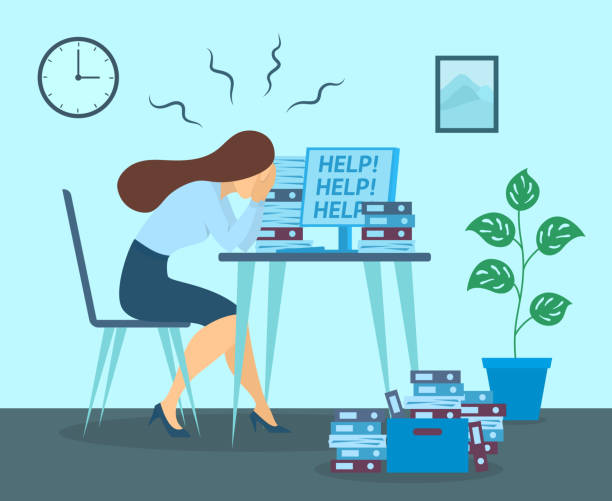Most of us spend a good portion of our day at work. But if eight hours of your day are filled with toxicity, it can significantly affect your mental health.
Online platform ResearchTrusted Source shows that a toxic workplace — including harassment, bullying, and ostracism — is a significant source of psychological strain for employees and can lead to high levels of stress and burnout.
This toxicity can also promote counterproductive behavior at work and ruin the efficiency of the organization. It causes disengagement among employees, decreases productivity, stifles creativity and innovation, and results in high turnover.
READ ALSO: Election anxiety may increase mental illness, heart disease
According to a recent report from MIT Sloan Management Review, a toxic workplace culture is over 10 times more likely to contribute to an employee quitting their job than low pay.
In fact, the report shows that a toxic work environment was the number one reason people left their jobs during the post-COVID-19 ‘Great Resignation’ — not because of compensation (as most people believed).
Signs of a toxic work environment
A toxic working environment is one where you feel psychologically unsafe. There’s often a general feeling of negativity, unhealthy competition, and aggression.
Authors of a recent StudyTrusted Source define a toxic workplace environment by the following:
- narcissistic behavior
- offensive or aggressive leadership
- harassment
- bullying
- ostracism
- threatening behavior from managers and coworkers
These are some signs that can create or contribute to a toxic work environment:
- a sabotaging boss who sets you up for failure
- micromanagement
- excessive gossip
- cliquish behavior
- passive aggressive boss or coworkers
- harassment or discrimination
- microaggressions (indirect or subtle prejudice)
- bullying
- unsafe working conditions
- cutthroat working conditions (environment of jealousy for others’ success or coworker
- trying to make you look bad or take credit for your work)
- lack of respect
- lack of opportunities for growth
- unrealistic workloads
- low pay
- unpredictable schedule
- coworkers get away with inappropriate behavior
- nonconstructive criticism
- a boss who continuously threatens to fire employees
- general atmosphere of chronic negativity
Dealing with a toxic work environment
Remember it’s not your fault: The negativity at your job isn’t your fault. Although having a positive attitude and collaborative mindset may help in certain situations, remember that there’s only so much you can do to improve the culture at your work.
Take your lunch break elsewhere: Be sure to take a lunch break where you can get out of the work environment. Sit in nature if possible.
Set boundaries: Don’t get bullied into skipping your lunch break or working after hours for no pay. Explain to your boss that you need your breaks and time off to recharge and do your job well.
Don’t get involved in the drama: Try to walk away from any drama or gossip. Nothing positive will come from it.
Stay focused on your goals: Do your best to stay in a positive state of mind. You won’t be here forever, and you have bigger and better things ahead of you.
Have an after-work ritual to raise your vibes: Do something after work to psychologically clear away the negativity. You can take a walk in nature, take a hot shower, or call a friend.
Stick with a few trustworthy coworkers: It’s a good idea to keep a few work allies, so you can support and confide in one another.
Don’t compromise your values: If someone at work is being cruel to you, do your best to not respond in kind. It will only make the situation escalate.
Engage in regular stress-coping techniques: Take up meditation, yoga, or engage in daily exercise to help you handle chronic stress.
Plan your exit: If the toxic work situation isn’t going to improve anytime soon, start your search for a new position.
Source: Healthline


